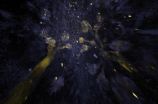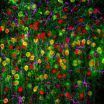Parenting skills improve in ADHD parents with medication
2014-07-31
(Press-News.org) Parenting skills of adults with ADHD improve when their ADHD is treated with medication, according to Penn State College of Medicine researchers.
At least 25 percent of clinic-referred children with attention deficit/hyperactivity disorder have a parent with ADHD.
"Parents with ADHD are at increased risk to engage in problematic parenting techniques, including inconsistent disciplinary practices, making ineffectual commands and diminished use of praise," said James Waxmonsky, associate professor of psychiatry. "Having a parent with ADHD also decreases the chances that children with ADHD will respond to typically effective medication or counseling treatment."
The researchers studied 20 parents of children age 5 to 12, both parents having ADHD. Parents were evaluated to determine their optimal dosage of lisdexamfetamine (Vyvanse) and then stabilized on the medicine.
In the first phase of the study, parents and children were brought into the laboratory on two separate occasions and observed while completing typical parenting tasks. Each standardized interaction consisted of a homework component and a non-academic portion. In the homework task, parents helped children to complete age-appropriate schoolwork. In the non-academic task, parents and children played together, then parents were instructed to complete paperwork while the child was told to play quietly by themselves.
The parent received either lisdexamfetamine or a placebo for the first observation and then the opposite for the second. Neither the researchers nor participants knew when the active medication was received.
The results of the first phase showed no medication effect was seen during the homework component. During the non-academic component, parents on lisdexamfetamine rather than on placebo were less likely to make negative statements toward their children.
Children showed less inappropriate behavior during the homework task when their parent was prescribed lisdexamfetamine versus placebo.
Then, in the second phase, parents had a 50 percent chance of staying on active medication or a 50 percent chance of being switched to placebo for the remainder of the study. They completed the same parent-child interaction tasks as in the first phase.
The results of the second phase showed that parents on lisdexamfetamine made fewer commands, were more responsive to their child and praised their child more than parents switched to placebo.
Parents on lisdexamfetamine spoke less than parents on placebo during the homework task, with no differences during the non-academic task. They were less demanding than parents on placebo during the nonacademic task, with no differences during the homework task. The children of parents on lisdexamfetamine had fewer inappropriate behaviors during the homework task.
"In the laboratory setting, lisdexamfetamine treatment of parental ADHD was associated with significant reductions in children's negative behaviors and improvements in parenting behaviors found to be adversely impacted by ADHD," Waxmonsky said.
With different effects being seen in the homework versus the nonacademic tasks, it appears that ADHD medication may improve adults' capacity to adjust their parenting behaviors to the task at hand.
"Changes in children's behaviors were seen first, with parenting behaviors improving over time in those continuously treated with lisdexamfetamine," said Waxmonsky.
Future research should use a larger sample of parents over a longer duration.
INFORMATION:
The current research was conducted while Waxmonsky was at Florida International University.
Other researchers on the project were Dara Babinski, assistant professor of psychiatry, and D.A. Waschbusch, professor of psychiatry, Penn State College of Medicine; H.H. Humphrey, J.N. Augustus, A. Alfonso, K.I. Crum, M. Bernstein, J. Slavec, and W.E. Pelham, Florida International University.
Shire Inc., the manufacturer of lisdexamfetamine, funded this study, which was initiated by the investigators.
ELSE PRESS RELEASES FROM THIS DATE:
The 'memory' of starvation is in your genes
2014-07-31
During the winter of 1944, the Nazis blocked food supplies to the western Netherlands, creating a period of widespread famine and devastation. The impact of starvation on expectant mothers produced one of the first known epigenetic "experiments" — changes resulting from external rather than genetic influences — which suggested that the body's physiological responses to hardship could be inherited. The underlying mechanism, however, remained a mystery.
In a paper published recently in the journal Cell, Dr. Oded Rechavi, Dr. Leah Houri-Ze'ev and Dr. Sarit Anava of Tel ...
NASA sees Tropical Storm Halong move northwest of Guam
2014-07-31
NASA's Tropical Rainfall Measuring Mission or TRMM Satellite passed over Guam as heavy rain fell over the island while Tropical Storm Halong's center passed just to the north of the island.
The TRMM satellite flew above tropical storm Halong on July 31, 2014 at 0904 UTC (August 1, 2014 at 7:04 p.m. local time, Guam).
At NASA's Goddard Space Flight Center in Greenbelt, Maryland TRMM data was used to create a rainfall analysis. The analysis derived TRMM's Microwave Imager (TMI) and Precipitation Radar (PR) data was overlaid on a visible/infrared image from Japan's MTSAT-2 ...
Asteroid attacks significantly altered ancient Earth
2014-07-31
TEMPE, Ariz. – New research shows that more than four billion years ago, the surface of Earth was heavily reprocessed – or mixed, buried and melted – as a result of giant asteroid impacts. A new terrestrial bombardment model based on existing lunar and terrestrial data sheds light on the role asteroid bombardments played in the geological evolution of the uppermost layers of the Hadean Earth (approximately 4 to 4.5 billion years ago).
An international team of researchers published their findings in the July 31, 2014 issue of Nature.
"When we look at the present day, ...
Mosaicism: Study clarifies parents as source of new disease mutations
2014-07-31
HOUSTON – (July 31, 2014) – Scientists have long speculated that mosaicism – a biological phenomenon, in which cells within the same person have a different genetic makeup – plays a bigger role in the transmission of rare disease mutations than is currently known. A study conducted by an international team of scientists led by Baylor College of Medicine sheds new light on the frequency of mosaicism in genomic disorders and its influence on recurrence risk.
The study, which was published today in the American Journal of Human Genetics, also included scientists from the ...
In high-stakes soccer, goalkeepers exhibit 'gambler's fallacy'
2014-07-31
When goalkeepers are pitted against multiple kickers in tense penalty shootouts, their attempts to dive for the ball show a predictable pattern that kickers would do well to exploit. After kickers repeatedly kick in one direction, goalkeepers become increasingly likely to dive in the opposite direction, according to an analysis of all 361 kicks from the 37 penalty shootouts that occurred in World Cup and UEFA Euro Cup matches over a 36-year period.
The findings reported in the Cell Press journal Current Biology on July 31 highlight the importance of monitoring and predicting ...
Selective logging takes its toll on mammals, amphibians
2014-07-31
The selective logging of trees in otherwise intact tropical forests can take a serious toll on the number of animal species living there. Mammals and amphibians are particularly sensitive to the effects of high-intensity logging, according to researchers in the Cell Press journal Current Biology on July 31 who conducted a meta-analysis of almost 50 previously published studies from around the world.
"Selective logging in the tropics is not a new phenomenon, and it will continue to be a common use of the forest," says Zuzana Burivalova of ETH Zurich, Switzerland. "We hope ...
See-through organs and bodies will accelerate biomedical discoveries
2014-07-31
The ability to see through organs and even the entire body to visualize long-range connections between cells as well as fine-grained cellular structures has been a long-time dream of biologists. A study published by Cell Press July 31st in the journal Cell has now made that dream a reality, revealing simple methods for making opaque organs, bodies, and human tissue biopsies transparent, while keeping the cellular structures and connections intact. The protocols could pave the way for a better understanding of brain-body interactions, more accurate clinical diagnoses and ...
Goalkeepers prone to 'gambler's fallacy' but penalty takers fail to exploit it
2014-07-31
After a string of penalties aimed in the same direction, goalkeepers are more likely to dive in the opposite direction on the next penalty but kickers fail to exploit this pattern, finds new UCL research.
The study, published in Current Biology, shows that penalty shoot-outs in international tournaments resemble a psychological game. The researchers studied penalty shoot-out videos from all World Cup and Euro finals tournaments between 1976 and 2012.
They found that each team of kickers produced more or less random sequences of kicks to the left or the right of the ...
Birthday matters for wiring-up the brain's vision centers
2014-07-31
Researchers at the University of California, San Diego School of Medicine have evidence suggesting that neurons in the developing brains of mice are guided by a simple but elegant birth order rule that allows them to find and form their proper connections.
The study is published online July 31 in Cell Reports.
"Nothing about brain wiring is haphazard," said senior author Andrew Huberman, PhD, assistant professor in the Department of Neurosciences, Division of Biological Sciences and Department of Ophthalmology, UC San Diego.
A mature, healthy brain has billions ...
New mapping approach lets scientists zoom in and out as the brain processes sound
2014-07-31
Researchers at Johns Hopkins have mapped the sound-processing part of the mouse brain in a way that keeps both the proverbial forest and the trees in view. Their imaging technique allows zooming in and out on views of brain activity within mice, and it enabled the team to watch brain cells light up as mice "called" to each other. The results, which represent a step toward better understanding how our own brains process language, appear online July 31 the journal Neuron.
In the past, researchers often studied sound processing in various animal brains by poking tiny electrodes ...




